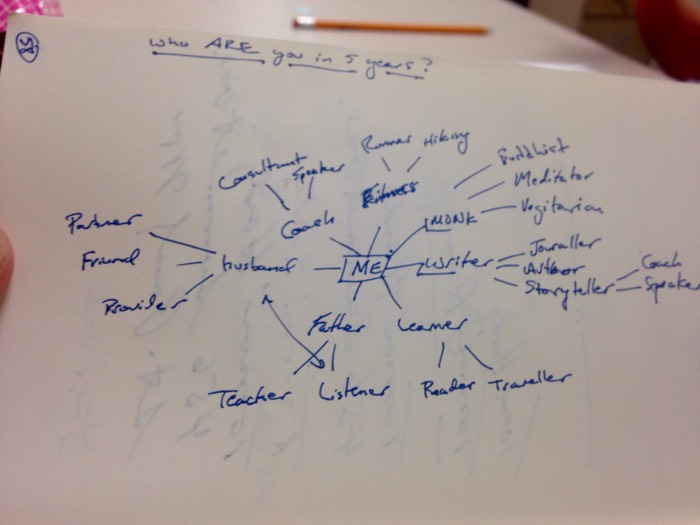I have long wanted to take a private/personal retreat of some kind. Last Christmas, my best friend Dawn gave me the gift of one — telling me to simply choose what I wanted and she would take care of any needed details. I searched for through the many option in the area, but kept coming back to a Franciscan based hermitage retreat called Pacem in Terris (Latin for “Peace on Earth”). My Birthday fell at the end of last week and I felt it would be perfect timing to spend it there in solitude and reflection.
Like Thoreau’s Walden Pond cabin, each hermitage is a small, single room cabin with an attached screen porch. Each one is sparely appointed with just the essentials — a bed, a rocking chair, a small table, a couple of stations for washing and cooking, and a small altar for those who wish to pray. A delicious basket of food is supplied and refreshed daily — a couple of loaves of (oh-my-goodness-so-delicious!) homemade bread, some fruit, some local cheese, and some jugs of water. They have been doing this for years so every amenity is well thought out and centered around reducing any stress or desire.
A retreat into solitude like this is impossible to convey in mere words. One has to really experience it and come away with their own impressions. For me, it was lovely and peaceful and restful and I highly encourage everyone to seek out such a place near them and allow themselves such a gift. But I felt, at the least, I could share some of the thoughts I wrote down about it. What follows are all direct passages I wrote in my journal during and after, offered in no particular order other than flow…
In many ways a solitary journey into the wilderness is, in equal measure, a journey into the wilderness of self. Just as the path into the woods draws us further away from civilization until all one can see in any direction is nature, so too is the truth of our own nature revealed. We can finally see our thoughts without noise or hinderance of distractions and obligations.
One of the interesting things about being out in nature with nothing to do but listen, notice, and ponder, is that one’s attention becomes more acute. When the leaves are blown by the wind, after time one stops hearing a whoosh and rustle and begins to hear each leaf knocking against another. Instead of one great sound one hears a collection of individual ones. Acorns falling to the ground sound like heavy raindrops in rapid succession and not a short storm. So too it becomes with our own thoughts — no longer are they a fleeting cacophony bombarded by many outside inputs — here, in the stillness, we can see and examine each one for what it is without the fear of loosing it.
Thoreau knew the secret. His journals make so much more sense to me now! I can understand how focused and excited he gets over the smallest things. How the way the snow caps or the lake shimmers can be worth a thousand word ode. Because, it is the way one sees them when in wilderness (external/internal). One would notice both each sparkle of snowflake and whole of a storm all at once. Just as I, sitting in the middle of this field, am alive to each swaying blade of grass and the whole of the prairie at once. I could surely write a thousand word ode to this!
The reality of how much this is missed in our daily lives was when I began to realize how much of an incredible luxury this seemed. Almost as if to be able to have such time and to experience such a thing were to enjoy something far beyond the means of most. For a short time I dealt with almost feeling ashamed at enjoying such fortune. To have the time, however short or long, to ponder both that which is all around us and that which is deep inside. To not have to rush through it all. To watch grasses sway and dragonflies dance on a crisp Autumn breeze while I examine each thought before sending it along without care for a next action. To have such things be the only thing I do.
Ask yourself, when was the last time your were alone. Not just alone in the sense of not having another person around but alone in the completest sense of having no distractions, obligations, tasks, next steps, “should be doings”, or “have to be doings”? Like me before this, I bet the answer was “never”. I feel like I’m now a member of some small, secret, select club. One who not only holds a secret but knows what it means. The impact it could have if more in our modern society knew it. It may sound absurdly grandiose yet I feel it does not begin to touch the surface. This experience changed me. I went into the wilderness one way and returned from it another — better equipped and seeing clearer.
I implore to all who might read this one day — go out there, into the wilderness, into solitude. Find the world there. Find what matters there. Find yourself there.
